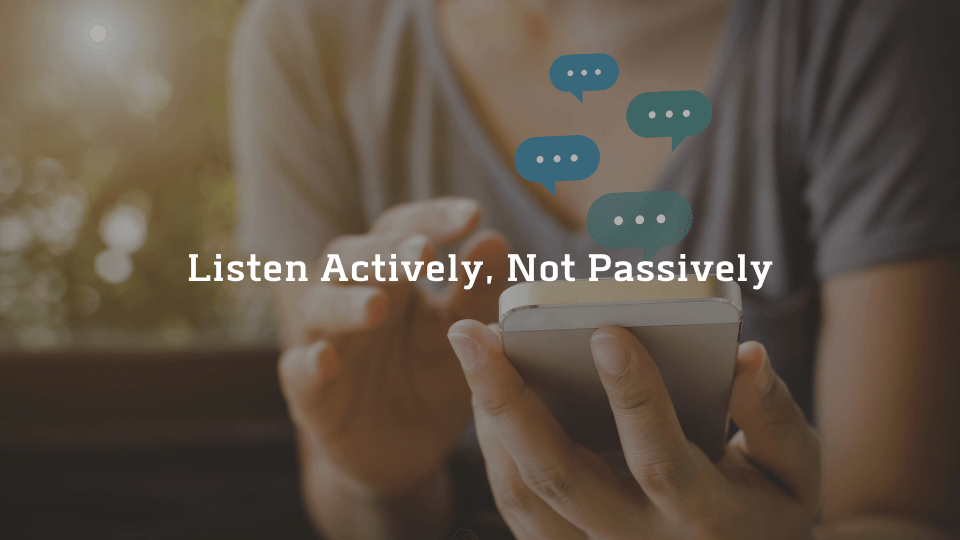仕事で使える英語リスニング力をアップする方法
/前回のブログでは、英語を使った職場で働く上で「リスニング力」がどれほど重要かについてお話ししました。
会議中でも、指示を受けるときでも、同僚との雑談でも——話されている英語を理解する力は、話す力よりも重要です。
良いニュースは、リスニングは「スキル」であるということ。つまり、正しい練習をすれば、誰でも上達します。
今回のブログでは、仕事で英語を使う場面で自信を持つための、リスニング強化の方法を紹介します。
なぜ「リスニング・聞く力」が職場で大事なのかを理解する
リスニング力があると、ミスを避け、指示に従い、適切に対応できるようになります。
私たちのスクールでも、優れたチームメンバー(日本人・ネイティブ問わず)はみんな「よく聞く人」でした。
周囲の会話や状況をきちんと理解できれば、指示を受ける、会議で発言する、同僚と関係を築く……そういったすべてのことがグッと楽になります。
自分のレベルを知り、自分に合ったレベルから始める
もし文法や日常の語彙にまだ自信がないなら、Netflixなどの速い英語のドラマやネイティブ向けのポッドキャストから始めるのは逆効果です。
まずは基礎を固めましょう。
初心者向けの動画、簡単な英語のポッドキャスト、教科書などがおすすめです。
この段階では英語講師にガイドしてもらうのも非常に効果的です。
大事なのは、「目指すレベル」ではなく、「今の自分のレベル」に合った内容を選ぶこと。
上達は、早い段階で難しいものに挑戦することではなく、「ちょうどいい難しさ」から生まれます。
本物の英語コンテンツを活用する(補助ツールと一緒に)
ある程度のリスニング力がついたら、リアルな英語コンテンツに挑戦しましょう。
YouTubeのインタビュー、TEDトーク、ニュースクリップ、Netflixなどが最適です。
Language Reactorというツールを使えば、字幕+単語の意味が同時に表示されて便利です。
知らない単語が出てきたら、ChatGPT や DeepLで調べ、発音はGoogleで確認しましょう。
また、「シャドーイング(音声のまねをして繰り返すこと)」もおすすめ。
話し手のイントネーションやリズムを真似することで、リスニング力とスピーキング力が同時に鍛えられます。
自分の業界やキャリア目標にフォーカスする
業界ごとに専門用語や話し方(フォーマルさ・言い回し・会話スタイル)が異なります。
ホスピタリティ、IT、教育、ビジネスなど、自分の目指す分野に関連する動画・プレゼン・インタビューを探してみましょう。
自分の分野の英語に慣れることが、実践の場での自信と準備につながります。
「ながら聞き」ではなく「集中して聞く」
料理中やスマホ操作中に英語を流すだけでは、ほとんど効果はありません。
リスニングでは集中がカギです。以下のようなアクションを心がけましょう:
全体の意味をつかむ
難しい部分で一時停止し、もう一度再生
わからない単語をチェック
短いフレーズを声に出して真似をする
たとえ20分でも集中して聞く方が、1時間の「ながら聞き」よりはるかに効果的です。
練習時間を記録し、継続する
たとえば「リスニング100時間チャレンジ」など、目標を決めて記録をつけましょう。
おすすめは「10x10 グリッド」です。
すべてを理解できなくても心配いりません。大切なのは継続して取り組むことです。
記録を埋めていけば、徐々に聞こえるようになり、英語が「自然な音」に変わってきます。
まとめ
完璧を目指す必要はありません。語学学習は時にストレスになりますし、「分からないことばかり」に落ち込んでしまうこともあります。
でも本当のところ、すべてを知っている人はいないのです。
もしあなたがすべてを知っていて完璧だったら、もう学ぶことはなくて、それってあまり面白くないですよね?
必要なのは、正しい練習・適切な教材・そして困難なときでも前に進むマインドセットです。
ぜひこのブログの中から1つ、今日から始めてみてください。そして、続けてみてください。
リスニング力が上がれば、自信がつき、コミュニケーション力が上がり、キャリアの新しい扉が開きます。
まだ読んでいない方は、「英語を使う仕事に就くためのガイド」もぜひチェックしてみてください。
そして、もし福岡にお住まいで「仕事で使う英語を伸ばしたい」と考えている日本人の方がいれば、近日ワークショップを開催予定です!
興味のある方は、お気軽にメッセージくださいね。お待ちしています!
— Tim Mastoris
[英語原文]
In our last blog, we talked about how important listening is for success in an English-speaking job. Whether you’re in meetings, taking instructions, or chatting with coworkers, the ability to understand spoken English is more important than your speaking level.
The good news? Listening is a skill—and like any skill, it gets better with the right kind of practice. In this post, I’ll share some practical strategies to help you build stronger listening skills and feel more confident using English in a professional setting.
1. Understand Why Listening Matters So Much at Work
Good listening skills help you avoid mistakes, follow directions, and respond appropriately. At our school, the best team members we’ve had—Japanese and native speakers—were good listeners. When you understand what’s happening around you, everything else becomes easier—whether it’s taking instructions, contributing in meetings, or building relationships with coworkers.
2. Know Your Level and Start at the Right Place
If you struggle with basic grammar or everyday vocabulary, don’t start with fast-paced Netflix shows or native-level podcasts. Build your foundation first. That might mean watching beginner videos, listening to simplified podcasts, or using textbook materials. Getting a teacher to guide you at this stage is also a smart move.
Improving your listening means choosing content that matches your current level—not the level you are aiming for. Progress comes from the right challenge—not from pushing too hard too soon.
3. Watch Real English Content (with Support Tools)
Once your level allows, real English content is a great way to improve your listening. Try YouTube interviews, TED Talks, news clips, or Netflix shows. Use Language Reactor to show subtitles and definitions at the same time—it’s a fantastic tool.
If you find unfamiliar words, look them up using AI (like ChatGPT or DeepL) and check pronunciation using Google.
Try shadowing: repeat what you hear, copying the speaker’s intonation and rhythm. It’s excellent practice for both your ears and your mouth.
4. Focus on Your Industry or Career Goals
Every field has its own vocabulary and typical way of speaking—how formal people are, what phrases they use, and how they interact. If you want to work in hospitality, IT, education, or business, search for videos, presentations, or interviews related to that industry.
The more you expose yourself to your target field’s language, the more confident and prepared you’ll be when the time comes to actually use it on the job.
5. Listen Actively, Not Passively
Don’t just play videos while you’re cooking or checking your phone. Focus. Try to:
Understand the overall meaning
Pause and replay difficult parts
Check unfamiliar words
Repeat short parts out loud
Even 20 minutes of focused listening is better than an hour of background noise.
6. Track Your Hours and Be Consistent
Set a goal like “100 hours of listening practice” and track it using our 10x10 Grid.
Don’t worry about understanding everything. What matters is showing up consistently. Keep filling in those boxes. Over time, things will start to click—and English will begin to sound more natural.
Conclusion
Perfection isn’t the goal. Language learning can be frustrating, and it’s easy to feel discouraged by how much you don’t know. But here’s the truth: no one knows everything. And honestly—if you were perfect, there would be nothing left to learn. And that doesn’t sound like much fun, does it?
What we need is consistent practice, the right content, and a mindset that allows us to keep going even when things get tough.
Pick one of the tips above and start today—and keep going. Stronger listening will boost your confidence, help you communicate better, and open new doors in your career.
If you haven’t read it yet check out our blog on finding an English-speaking job.
And if you’re based in Fukuoka, we’re planning a workshop for Japanese professionals looking to improve their English for the workplace. If you’re interested, just send us a message—we’d love to hear from you!
— Tim Mastoris










